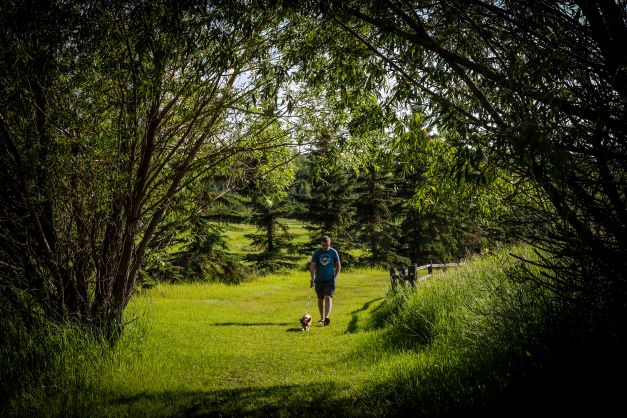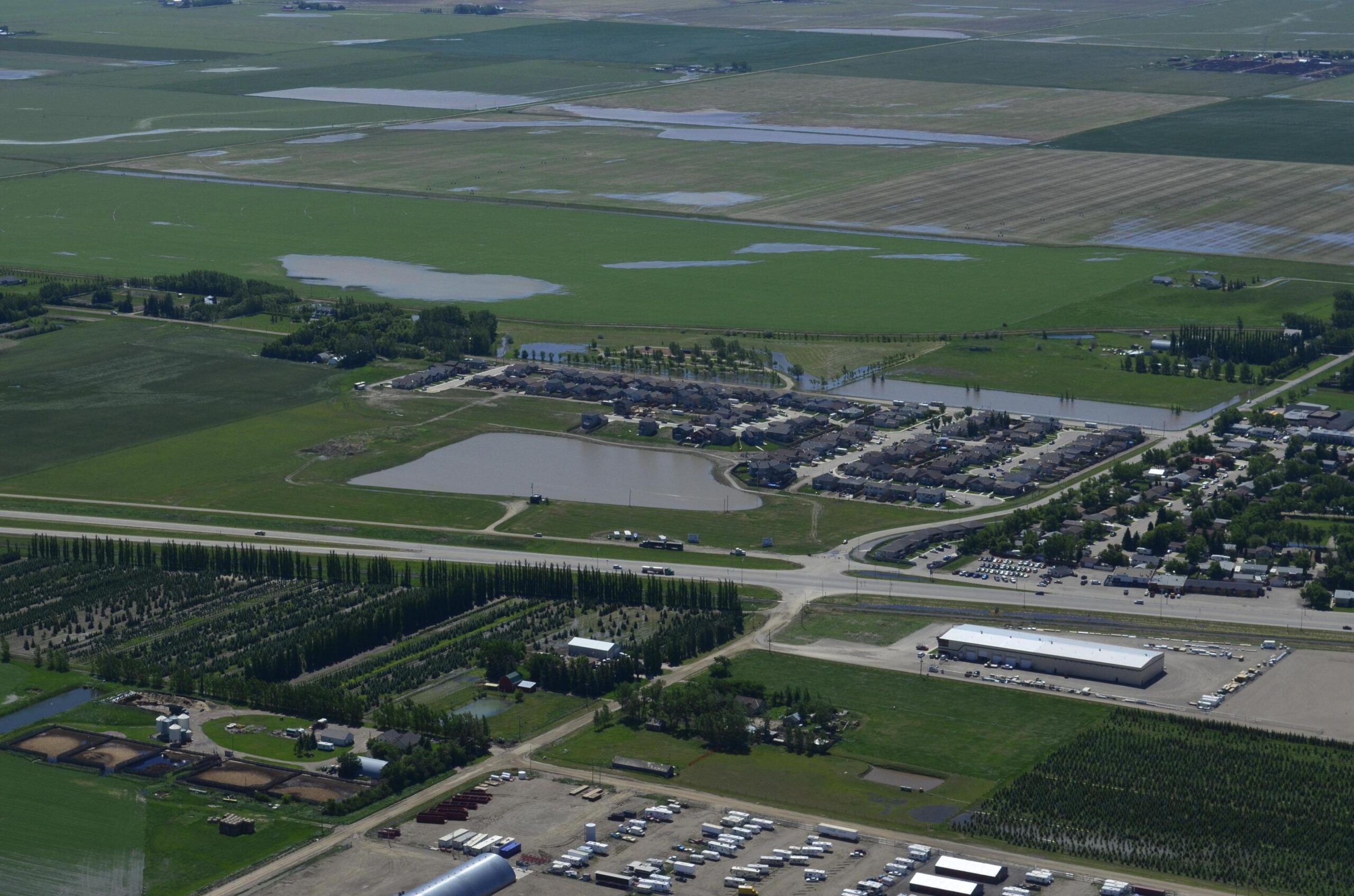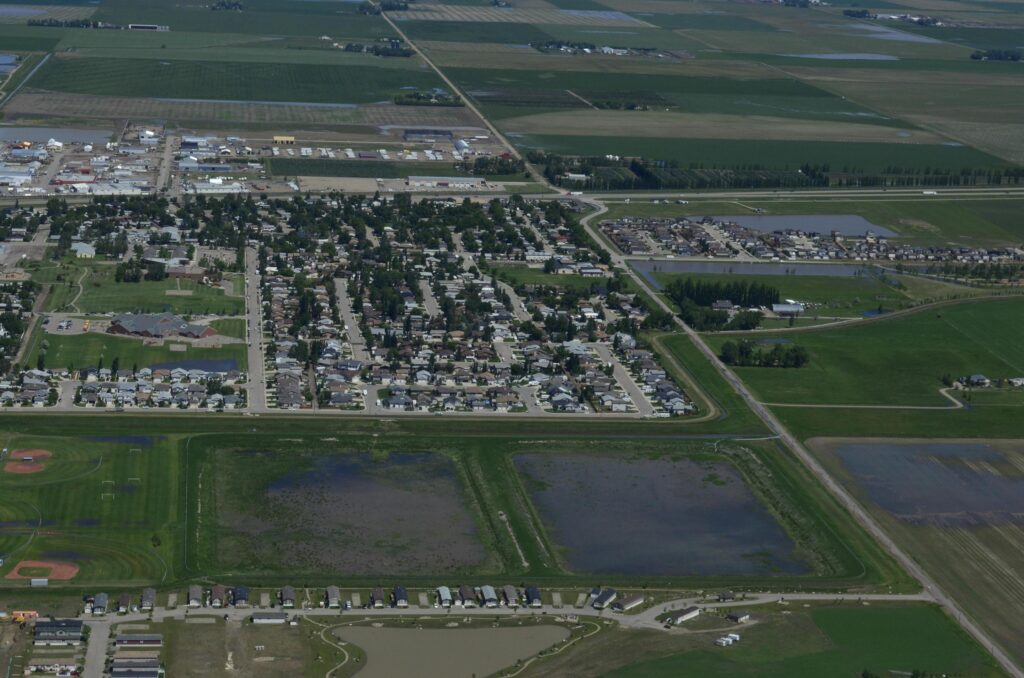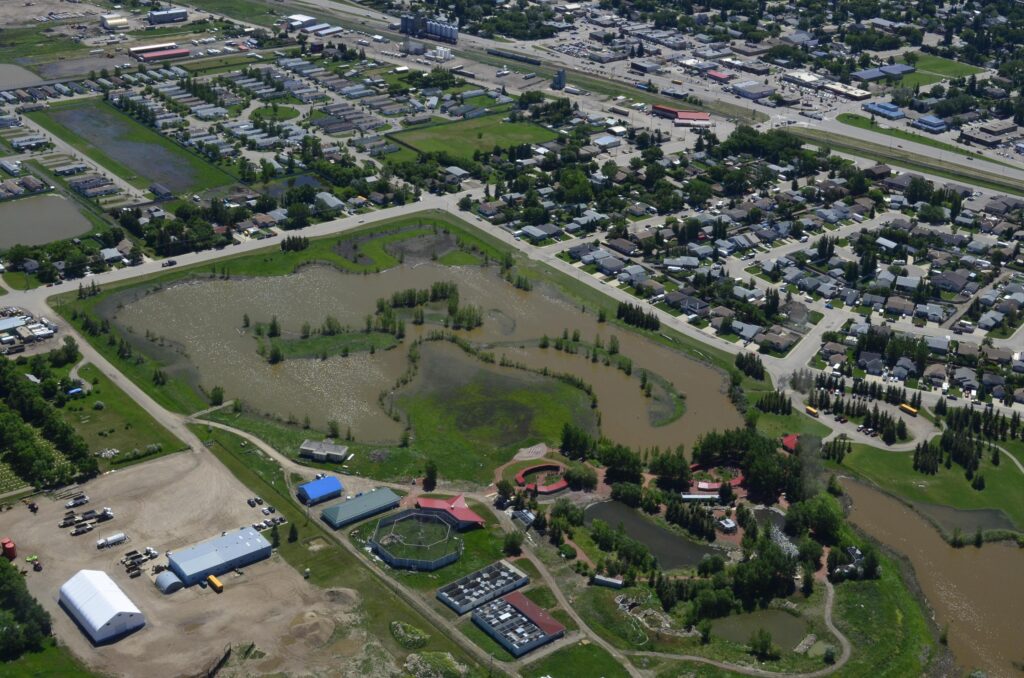Overview
The Town of Coaldale and Lethbridge County received $159,515 in grant proceeds for the completion of a Climate Change Resilience Assessment and Stormwater Master Plan. MCCAC provided the grant proceeds through the Climate Resilience Capacity Building Program, funded by the Government of Alberta.
In partnership with Lethbridge County, the Town of Coaldale retained MPE Engineering Ltd. to conduct a climate change resilience assessment to identify stormwater infrastructure that is at risk due to climate change and recommend infrastructure upgrades to reduce flood risks.
Approach
The Town of Coaldale and Lethbridge County are situated within the Malloy Drainage Basin (MDB). An area encompassing nearly 22,000 hectares, the MDB is drained through a complex series of natural and constructed canals and drains.
This area has experienced flooding during significant rainfall and snow melt events in 2002, 2005, 2010, and 2014. The many irrigation canals within the basin, which send water to surrounding region and play a critical role in the local agri-food economy, are susceptible to damage from flood events.
The St. Mary River Irrigation District (SMRID) is the owner of the constructed drains within the Malloy Drainage System, and supplies water for agriculture, commercial, and municipal use throughout the Malloy Basin. The Town, County, and SMRID formed a steering committee and have been working together since 2007 on strategies to mitigate the impacts of stormwater within MDB.
With development in the region growing and the amount of water being diverted into the drainage system increasing, this project was completed to provide the parties with a current snapshot of the flooding risks as well as insights into future risks due to climate change.
The assessment was completed using the of the Public Infrastructure Engineering Vulnerability Committee (PIEVC) High Level Screening Guide (HLSG), and in accordance with Infrastructure Canada’s Climate Lens General Guidance.
The scope of the project included impacts to system components such as stormwater sewers, irrigation canals, wetlands, and stormwater pump stations, as well as safety of stormwater maintenance personnel and site visitors, and water quality.
Results
For the future period of 2071 – 2100, the assessment identified 86 interactions between climate hazards and MDB infrastructure components. The climate hazards were evaluated based on how they impacted the physical integrity and the operations of the infrastructure component.
The resulting risk scores indicate that flash flood and regional flood events pose the greatest risk to almost all investigated drainage infrastructure components. Recommended adaptation actions are given for all climate infrastructure interactions which received a medium or high-risk score.
The study also recommends considering ‘no-regret solutions’ and evaluating if the costs of potential damage incurred due to inaction outweigh the costs of adaptation.
Benefits
As higher intensity rainfall events are expected to increase with climate change, taking steps to implement stormwater management improvements within the study area is increasingly important.
This study equips the three parties with an understanding of the exposure of stormwater infrastructure to climate hazards, potential consequences, and recommended adaptation actions. This information can be used to inform the design of new infrastructure and upgrades to existing infrastructure to enhance drainage capabilities within the basin.
The Town of Coaldale, Lethbridge County, and St. Mary River Irrigation District are grateful for the financial support that the MCCAC has provided towards this project. The final report will serve as an invaluable planning tool to support our efforts towards improving the resiliency of our stormwater infrastructure and prepare us for the battle against climate change.
Dustin Yanke, Manager of Infrastructure







You must be logged in to post a comment.